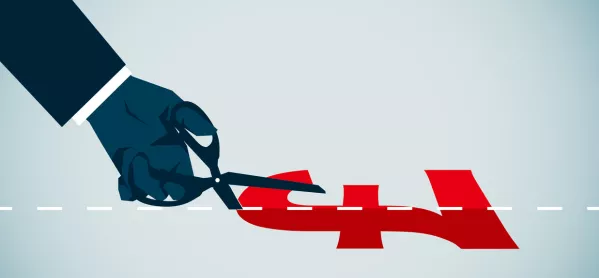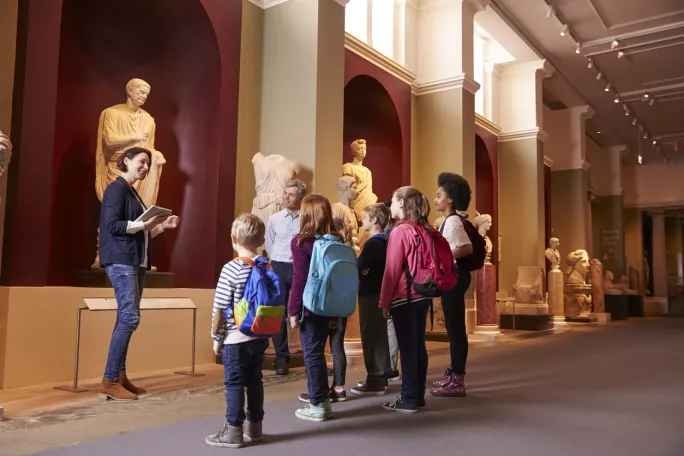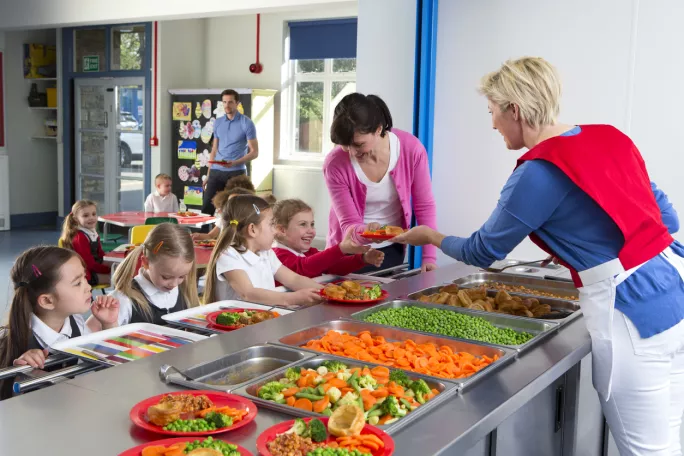Pupil premium ‘cut’ shows lack of ‘empathy’, says head

The government’s controversial change to the allocation of pupil premium funding has so far forced heads to consider redundancies and stretch academic and pastoral support for children thinly at a crucial time for their education.
And at one school in the North East, headteacher Judith Hodgson fears that it will be “the things that the children remember” - such as trips, visitors and themed events - that will be the first to go as a result of the policy change, which some have called a “stealth cut”.
Ms Hodgson, who leads Brandon Community Primary School, in County Durham, is the third head to speak to Tes as part of a mini-series about how schools are being affected by the change to the way pupil premium money is being allocated this year.
While the cash for support in core subjects will be prioritised, the school will suffer dents to its budget elsewhere. This, Ms Hodgson says, will hit those “special extras” that mean so much to deprived children in her care.
“Because education is probably not as valued as I would like it to be in our area by our families, those little things…are the things that the children remember - they’re the things they take away, they’re the things that you remember from your school, and they’re the things that we value very, very much,” she said.
“And so to enable us to do that we do have to find that money and we have to secure it. And it’s so important, but when we lose money, that has to be the first thing that goes, unfortunately.”
Mini-series, Part 1: Will pupil premium ‘cut’ risk teacher jobs?
Mini-series, Part 2: ‘Insulting’ funding change hits school catch-up
Investigation: ‘Come clean’ on funding gap, DfE told
Exclusive: DfE’s valuation of ‘stealth cut’ kept secret
Nick Gibb: Schools ‘won’t lose out over pupil premium change’
Background: Teachers ‘sickened’ as DfE delays cash for poor pupils
Ms Hodgson is now considering asking charities for help in closing the funding gap.
“I think, as a headteacher, what I’m probably going to end up doing is looking out there for other funding to make those things happen, charities and things like that - which actually, we’re not a charity and we shouldn’t be running as a charity, but that’s the sort of thing that we would do to make sure that the children didn’t miss out,” she said.
The impact of pupil premium funding policy change
The Department for Education has so far refused to specify the amount that schools are set to lose from its decision to calculate pupil premium allocations for 2021-22 based on a census from last October, and not in January, when more pupils would have been eligible for the money because of the impact of the coronavirus crisis.
The estimated size of the resulting funding gap has ranged from £3.5 million across five London boroughs, to between £5.16 million and £7.26 million among schools in the North East. The national loss was placed at £133 million by Labour.
In order to better understand the impact of the change on the ground, Tes has been speaking to heads from across the country about the size of the hole it has left in their budgets - and what this means for the year to come.
At Ms Hodgson’s school, 14 pupils became newly eligible for the premium between October and January.
This means that, had the government allocated funds according to the January census, as schools had been expecting, she would have received roughly £20,000 extra to provide support for the poorest pupils.
Ms Hodgson said the change would have a “double impact” on children this year due to the Covid crisis.
“It’s the human support that those children need: opportunities to have another adult sitting with them in one-to-one or small groups, and they are our families and our children who’ve really had the biggest hit with Covid,” she said.
“They’re the families who have needed additional support to access online learning, and they are the families who probably didn’t access it as much as we would have liked them to, so it’s the double impact really. I think that without Covid it would have had an impact, but with Covid it’s even harder.”
Explainer: What is the pupil premium policy shift?
This year, the government has decided to calculate the number of children attracting pupil premium funding from April using a different reference point.
Instead of basing its allocations on the number of children eligible in January, as it has done in previous years, the Department for Education is using data from a census carried out last October.
The change means that any children who became newly eligible between October and January will not attract pupil premium money in school budgets allocated from April this year.
The policy shift came as a shock to schools, which said it would deprive them of thousands of pounds that should be spent on helping disadvantaged pupils.
While those children will continue to access the necessary academic support, such as intervention programmes, this will come at the expense of some of the “exciting and interesting” elements of their school experience, Ms Hodgson said.
“I think the truth of the matter is that there will be as much access to that support because it’s what the children need and we’ve got to put that first, but it will be the other things that we have to miss out because of it,” she said.
“Because, at the end of the day, we do try to make things nice for the children, so we’ll have to reduce the other spends to allow that to happen, because academically our children really do need to make that progress.
“They need to have those basic skills; they need to have a sound grounding in literacy and numeracy, and, of course, that’s what we use our pupil premium for. And so I think it would be unfair to say that those 14 children would miss out on the support that they need, but the whole school will have to miss out on something else to be able to allow us to do that.”
She added: “I think it’s interesting because, of course, the government’s argument appears to be that it’s only a shuffle and so we will get that money eventually, but this is the time that we need it. This is the one time that we can’t afford to be without it. And so it is very frustrating.”

One victim of the spending cuts is likely to be a series of special events designed to enrich the school experience.
“We always give staff something called ‘Wow money’,” Ms Hodgson explained.
“So ‘Wow’ funding is something that the staff decide how to spend it on making a topic or a theme, giving it a huge launch - so it could be a visitor in school or a visit out of school, or a feast, for example…we’ve just had Aztecs, they’ve been studying Aztecs, and they had an Aztec feast to start off.
“But that costs money and they’re the sorts of things that are probably going to end up being a bit of a luxury. And £200 per class equates to almost £20,000 - so you can see where that would happen.”
Asked how she responded to schools minister Nick Gibb’s recent suggestion that schools claiming they are losing out from the change may not have calculated the impact correctly, Ms Hodgson said she found this an “insult”.
“My response to that is that we know exactly when our parents need free school meals, and we have a system whereby as soon as they...come to us, they tell us they’ve lost their job, we apply immediately. If it doesn’t come through immediately, we apply again,” she said.
“So minute by minute, ours changes, if the truth be known. And so therefore, I would find that an insult.
“And we have absolutely zero children who are new to our pupil premium list who should have, would have, could have been applying in the last six years. Definitely not. They’re new families, and they’re new families because of the changes in their circumstances in the last 12 months.”

She added: “The thing for me is that we’ve got a lot of very low-income families. So those who don’t access pupil premium, a lot of them are just borderline, they’re just not quite there.
“So it only takes for them to lose a shift at work regularly, or to be furloughed and lose 10 per cent of their income or 15 per cent of their income, and they immediately would fall into that pupil premium...category.
“And I think that’s the key, really, we’re not talking about families who’ve never worked. We’re talking about families who’ve...always struggled...the ones who really have been on the borderline who we’ve noticed have now become [eligible for] free school meals.”
Ms Hodgson said she believed the government didn’t have “any sympathy or empathy” with schools on the matter.
“I really don’t think they understand,” she said.
“And if that money were to go into my pocket, if it were for me as a headteacher or a head of a business, I could understand that, but this is real, hard cash for the children who are in this school.
“And it’s so frustrating. I think that’s the most frustrating thing...it’s not about fancy lifestyles...we’re not talking about that - we’re talking about very simple, basic things that we need in a school.”
The Department for Education has been approached for comment.
You need a Tes subscription to read this article
Subscribe now to read this article and get other subscriber-only content:
- Unlimited access to all Tes magazine content
- Exclusive subscriber-only stories
- Award-winning email newsletters
Already a subscriber? Log in
You need a subscription to read this article
Subscribe now to read this article and get other subscriber-only content, including:
- Unlimited access to all Tes magazine content
- Exclusive subscriber-only stories
- Award-winning email newsletters
topics in this article



